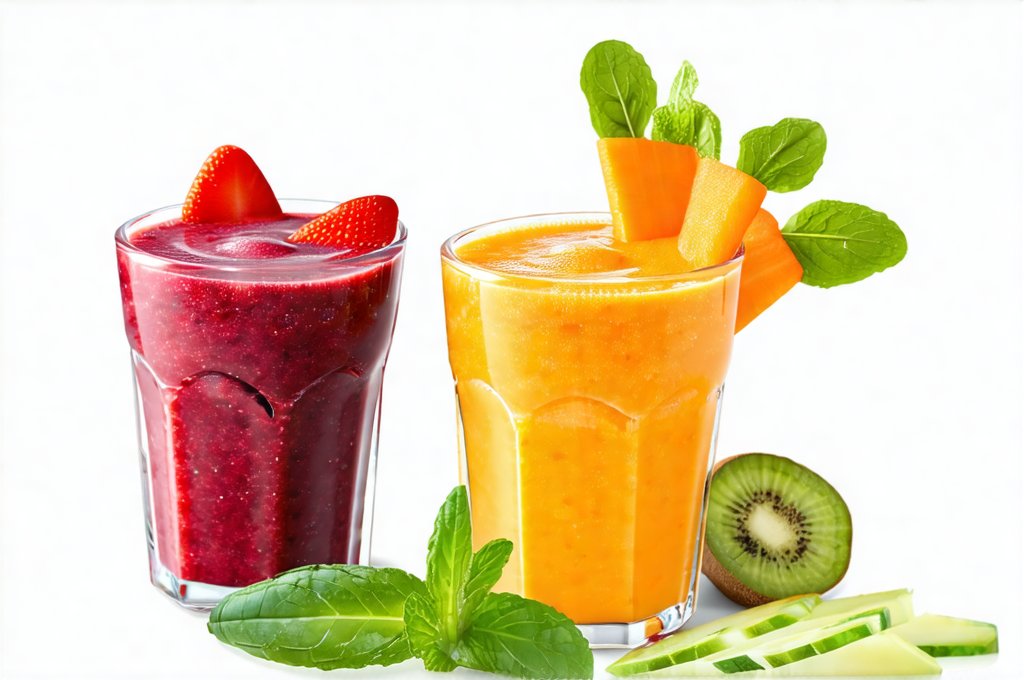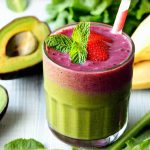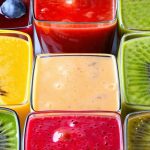Constipation is a surprisingly common digestive issue affecting people of all ages, though it’s often something we hesitate to discuss openly. It can range from infrequent bowel movements to difficulty passing stool, and frequently comes with uncomfortable symptoms like bloating, gas, and abdominal pain. While occasional constipation isn’t usually cause for serious concern, chronic or severe cases can significantly impact quality of life. Many factors contribute to constipation, including a low-fiber diet, dehydration, lack of physical activity, stress, certain medications, and underlying medical conditions. Addressing these root causes often involves lifestyle adjustments, and dietary changes are frequently the first line of defense.
Fortunately, there’s a delicious and effective way to combat constipation naturally: smoothies! A well-crafted smoothie packed with fiber-rich ingredients can gently stimulate digestion, soften stool, and promote regularity. The key is choosing the right combination of fruits, vegetables, seeds, and liquids. This article will explore how to create constipation-safe meal prep brimming with natural fiber, providing you with a variety of recipes and tips for easing digestive discomfort and improving your overall gut health. We’ll focus on ingredients that are known to support healthy bowel movements without causing additional bloating or irritation.
Understanding Fiber and Its Role in Relieving Constipation
Fiber is the unsung hero when it comes to digestive health, and a lack of it is often the primary cause of constipation. There are two main types of fiber: soluble and insoluble. Soluble fiber dissolves in water, forming a gel-like substance that helps soften stool and regulate blood sugar levels. Good sources include oats, barley, apples, citrus fruits, and beans. Insoluble fiber, on the other hand, doesn’t dissolve in water but adds bulk to the stool, helping it move through the digestive tract more quickly. Excellent sources include whole grains, vegetables like broccoli and carrots, and nuts and seeds. A healthy diet should incorporate both types of fiber for optimal digestion.
When increasing your fiber intake, it’s crucial to do so gradually to avoid gas and bloating. Simultaneously increasing water consumption is equally important; fiber absorbs water, and without enough hydration, it can actually worsen constipation. Smoothies are an excellent way to combine fiber-rich ingredients with hydrating liquids like water, almond milk, or coconut water. Furthermore, certain fruits and vegetables naturally contain sorbitol, a sugar alcohol that has mild laxative properties – think pears, prunes, and apples. Incorporating these strategically can provide gentle relief without harsh side effects. For more information on managing digestive discomfort, consider exploring best sources of dietary fiber for nausea or reflux.
Building Your Constipation-Safe Smoothie: Ingredients to Embrace
The foundation of any good constipation-safe smoothie lies in selecting the right ingredients. Leafy greens are nutritional powerhouses and a fantastic source of fiber and magnesium, which helps muscles contract and move waste through the digestive system. Spinach and kale are excellent choices, but you can also experiment with romaine lettuce or chard. Fruits like berries (raspberries, blueberries, strawberries) provide both fiber and antioxidants. Bananas offer potassium and soluble fiber, while pears and apples contribute sorbitol for gentle regularity.
Seeds are tiny but mighty when it comes to fiber content. Chia seeds and flaxseeds are particularly beneficial; they expand in the digestive tract, adding bulk and promoting bowel movements. Ground flaxseed is easier to digest than whole flaxseeds. Don’t forget about healthy fats! A tablespoon of avocado or nut butter can add creaminess and essential nutrients while also supporting digestion. Finally, choose a liquid base that supports hydration. Water, unsweetened almond milk, coconut water, or even herbal tea are all great options. Avoid sugary juices as they can exacerbate digestive issues. If you’re looking for quick solutions, check out low-fodmap meal ideas with no cooking required.
The Power of Prunes in Smoothies
Prunes have long been recognized as a natural remedy for constipation, and their inclusion in smoothies is a smart move. They’re packed with fiber – both soluble and insoluble – as well as sorbitol, which draws water into the intestines, softening stool and easing passage. While some people may hesitate due to the strong flavor, prunes blend surprisingly well into smoothies, especially when paired with other fruits like bananas or berries. Start with just a few prunes (2-3) and adjust to your taste preference.
Consider these tips for incorporating prunes:
– Soak dried prunes in warm water for 10-15 minutes before blending to soften them and enhance their blendability.
– Pair prunes with complementary flavors like cinnamon or ginger, which can mask the prune flavor and add a warming effect.
– Use prune juice as part of your liquid base – just be mindful of its natural sweetness.
Incorporating Leafy Greens Without the Taste
Many people shy away from adding greens to their smoothies because they fear a bitter taste. However, there are several ways to mask the flavor while still reaping the nutritional benefits. Spinach is generally milder in flavor than kale, making it a great starting point. Blend greens with sweeter fruits like berries, bananas, or mangoes to balance the flavor profile.
Here’s how to minimize the green taste:
– Start small: Begin with a handful of spinach and gradually increase the amount as you get used to the flavor.
– Freeze your greens: Freezing greens can actually mellow their flavor.
– Blend thoroughly: A high-powered blender will ensure that the greens are fully incorporated, resulting in a smoother texture and less noticeable taste.
– Pair with citrus: Lemon or lime juice can help brighten the flavor and mask any bitterness.
Seeds for Bulk & Omega-3s
Chia seeds and flaxseeds are nutritional powerhouses that offer significant benefits for digestive health. Chia seeds absorb up to 12 times their weight in water, creating a gel-like substance that adds bulk to stool and promotes regularity. Flaxseeds are rich in omega-3 fatty acids, which have anti-inflammatory properties and can support overall gut health. Ground flaxseed is preferable to whole flaxseeds as the body can more easily digest it and absorb its nutrients.
Here’s how to maximize their benefits:
– Use ground flaxseed for better absorption.
– Soak chia seeds in water or your liquid base for 10-15 minutes before blending to allow them to expand.
– Start with a tablespoon of each seed per smoothie and adjust as needed.
– Combine seeds with other fiber sources like fruits, vegetables, and oats for optimal results. To further support digestive wellness, explore gut-healing breakfast ideas with probiotic support. Consider also how you can design a gut-healing day incorporating movement and hydration. If a high-fat diet is part of your lifestyle, understand why high-fat diets combined with low fiber intake can provoke ongoing indigestion. Finally, for a quick boost, try these anti-bloating smoothie ideas.


















